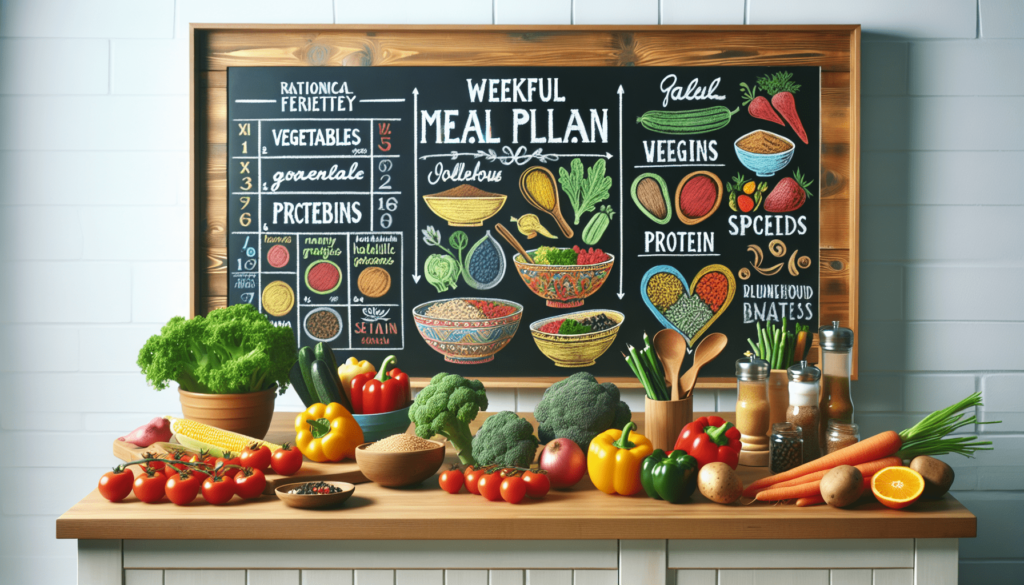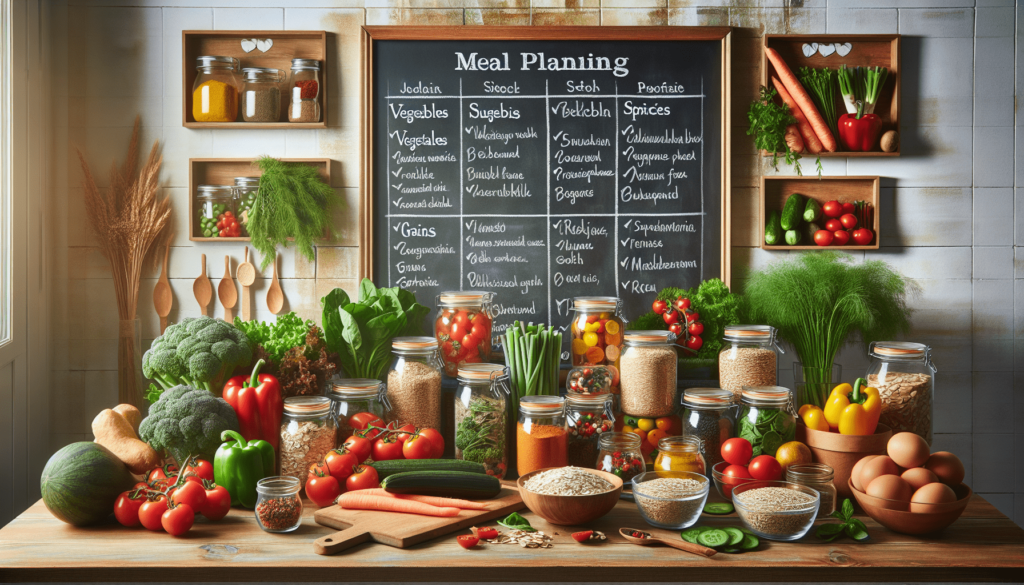Diving into the world of meal planning can truly be a game-changer for your daily routine. Imagine a life where each meal is thought out ahead of time, grocery shopping becomes a breeze, and you reduce food waste with remarkable efficiency. Not only does meal planning simplify your eating habits, but it also encourages healthier food choices and manages your budget more effectively. Embrace the concept, and you’ll soon discover how this clever approach can streamline your weekly tasks and give you back precious time to enjoy other aspects of your life. Have you ever found yourself standing in front of your open fridge at dinner time, wondering what to make and wishing meal times could just be a little bit easier? If this scenario sounds all too familiar, meal planning could be the answer you’ve been looking for. Meal planning is not just about deciding what to eat ahead of time; it’s a powerful tool that can transform your relationship with food, streamline your daily routines, and even improve your health.
Why Is Meal Planning So Important?
Meal planning might seem daunting at first, but once you understand its benefits and get the hang of it, you’ll wonder how you ever managed without it.
Save Time and Reduce Stress
When you plan your meals, you eliminate the daily pressure of deciding what to cook. Imagine coming home and knowing exactly what’s on the menu and that you have all the necessary ingredients on hand. This foresight saves you time both in decision-making and in shopping, as you won’t have to make last-minute runs to the grocery store.
Healthier Eating Habits
Meal planning is your dietary game changer. When you map out your meals, you have more control over the ingredients and portion sizes, making it easier to cater to dietary restrictions or goals. Whether you’re counting calories, cutting out sugar, or just trying to eat more vegetables, meal planning helps you incorporate these goals into your daily life consistently.
Portion Control and Reduced Food Waste
With meal planning, you cook what you need, which means you can also control how much you eat. By planning portions ahead, you avoid overeating simply because there’s extra food on your plate. Additionally, by buying only what you know you’ll use, you’ll reduce the amount of food that ends up in the trash.
Saves Money
Budgeting becomes more manageable with meal planning. When you have a plan, you buy only what you need, avoiding impulse buys that add up quickly. Moreover, by leveraging promotions and bulk buying for the items you plan to use, you can save even more money.
How to Get Started with Meal Planning?
Getting started with meal planning doesn’t have to be complicated. Here’s a simple way to begin this helpful habit.
Step 1: Check Your Calendar
Start by looking at your weekly commitments. Knowing how busy your week will be can help you plan meals accordingly. For days when you know time will be tight, consider preparing simpler dishes or using a slow cooker.
Step 2: Choose Your Recipes
Gather some recipes that you and your family enjoy. Don’t forget to include some healthy snacks in the mix. For variety, try to balance between types of proteins, veggies, and carbs. If you’re stuck, plenty of websites and apps can help generate meal ideas based on your dietary preferences.
Step 3: Make a Shopping List
Once you have your meals mapped out, list down every ingredient you’ll need for the week. Organize your list by categories (produce, dairy, pantry items, etc.) to make your shopping trip more efficient.
Step 4: Prep in Advance
Consider what steps you can take in advance to make meal prep smoother. This might include chopping vegetables, marinating proteins, or even fully preparing some meals and storing them in the fridge or freezer.

Efficient Meal Planning Strategies
To really master meal planning, consider these strategies to elevate your meal prepping game.
Batch Cooking and Freezing
Cook large quantities of meals at once, then freeze them in individual or family-sized portions. Foods like soups, stews, and casseroles are great for this method. This strategy means you always have a homemade meal ready to go, just heat it up!
Themed Dinner Nights
Make planning easier by setting theme nights each week, like Meatless Monday, Taco Tuesday, or Fish Friday. Themed nights reduce the number of new decisions you need to make and can make meal planning more fun.
Use Technology
Take advantage of technology by using meal planning apps. These can suggest recipes based on your dietary preferences and what’s on sale at your local grocery store, and can automatically generate shopping lists.
Managing Your Meal Plan
Once you’ve established a routine, maintaining it requires some flexibility and regular updating.
Adjust as Needed
Life is unpredictable. Some days you won’t feel like eating what you planned, or maybe you eat out unexpectedly. Be flexible and willing to swap meals between days or push them to the following week if needed.
Review and Reflect
Regularly look back at your meal plans to identify what worked and what didn’t. Maybe you found certain recipes were a hit, or others were too time-consuming. Use this information to refine future meal plans.
Keep It Exciting
Introduce new recipes to keep things interesting. This not only prevents mealtime from becoming repetitive but also allows you to expand your culinary skills and discover new favorites.

Conclusion
Meal planning is an excellent tool that can save you time, money, and stress, while also helping you to maintain a healthier lifestyle. By following the steps and strategies outlined above, you can successfully implement and stick to a meal planning routine that works for your needs and preferences.
Remember, the key to successful meal planning is finding a routine that fits seamlessly into your life. So, why not give mealeniolog a try and see how it transforms your meal times and maybe even your health!
